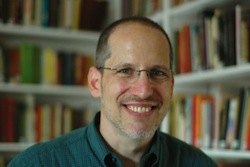非常抱歉,
你要访问的页面不存在,
非常抱歉,
你要访问的页面不存在,
非常抱歉,
你要访问的页面不存在,
验证码:

职称:Associate Professor
所属学校:University of Virginia-Main Campus
所属院系:anthropology
所属专业:Anthropology
联系方式:434-924-3536
I am a cultural anthropologist with research interests in the anthropology of corporations, financial markets, culture theory, race, historical anthropology, and the history of anthropology. I did long-term field research in the Pacific in two regions of Papua New Guinea: Orokaiva in Oro Province and Arapesh in East Sepik Province. My undergraduate teaching includes courses on "Culture and Globalization" and "The Concept of Culture." I also teach graduate seminars on the history of anthropology, race theory, ethnographic methods, and the role of development NGOs in international aid. My book The Meaning of Whitemen: Race and Modernity in the Orokaiva Cultural World examines how Orokaiva and other Papua New Guineans conceptualize "whitemen" and the West through stereotypes that are morally-charged with the people's own evaluations of western power, wealth, and race privilege. By analyzing race outside the familiar landscape of western racial politics and assumptions, the book provides a fresh approach to understanding how race is culturally constructed, showing how racial categories can be grounded in "raced" material objects, and explaining why racial stereotypes stubbornly persist in the face of counterevidence. I am currently writing a book on the anthropology of the corporation. The institution of the corporation gives legal substance to the social reality of a collective undertaking, yet the main theories that orient contemporary discussions of corporate personhood are individualistic. I use my anthropologist's attention to details of social form, microsocial process, and the taken-for-granted in culture to provide a fresh look at the cultural and social underpinnings of this important institution. Another important side of my research is the history of anthropology, which is what initially brought me into the field. Here my special interest is examining how past anthropologists were perceived by their informants and hosts in the field, and how this affected their findings, a kind of study that combines the history of anthropology with historical ethnography. In this vein I've written about the colonial context of David Schneider's fieldwork on Yap (Micronesia) during the U.S. naval colonial administration of the islands after World War II. I am currently working with Lise Dobrin on a book and series of articles that explore different sides of the fieldwork that Margaret Mead and Reo Fortune conducted together among the Arapesh in 1931-1932, on the basis of which the two came to contradictory conclusions about Arapesh culture. I also have an abiding interest in the Boasian anthropologists of the early 20th century.
I am a cultural anthropologist with research interests in the anthropology of corporations, financial markets, culture theory, race, historical anthropology, and the history of anthropology. I did long-term field research in the Pacific in two regions of Papua New Guinea: Orokaiva in Oro Province and Arapesh in East Sepik Province. My undergraduate teaching includes courses on "Culture and Globalization" and "The Concept of Culture." I also teach graduate seminars on the history of anthropology, race theory, ethnographic methods, and the role of development NGOs in international aid. My book The Meaning of Whitemen: Race and Modernity in the Orokaiva Cultural World examines how Orokaiva and other Papua New Guineans conceptualize "whitemen" and the West through stereotypes that are morally-charged with the people's own evaluations of western power, wealth, and race privilege. By analyzing race outside the familiar landscape of western racial politics and assumptions, the book provides a fresh approach to understanding how race is culturally constructed, showing how racial categories can be grounded in "raced" material objects, and explaining why racial stereotypes stubbornly persist in the face of counterevidence. I am currently writing a book on the anthropology of the corporation. The institution of the corporation gives legal substance to the social reality of a collective undertaking, yet the main theories that orient contemporary discussions of corporate personhood are individualistic. I use my anthropologist's attention to details of social form, microsocial process, and the taken-for-granted in culture to provide a fresh look at the cultural and social underpinnings of this important institution. Another important side of my research is the history of anthropology, which is what initially brought me into the field. Here my special interest is examining how past anthropologists were perceived by their informants and hosts in the field, and how this affected their findings, a kind of study that combines the history of anthropology with historical ethnography. In this vein I've written about the colonial context of David Schneider's fieldwork on Yap (Micronesia) during the U.S. naval colonial administration of the islands after World War II. I am currently working with Lise Dobrin on a book and series of articles that explore different sides of the fieldwork that Margaret Mead and Reo Fortune conducted together among the Arapesh in 1931-1932, on the basis of which the two came to contradictory conclusions about Arapesh culture. I also have an abiding interest in the Boasian anthropologists of the early 20th century.